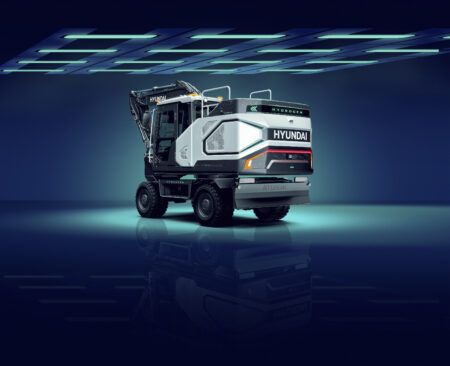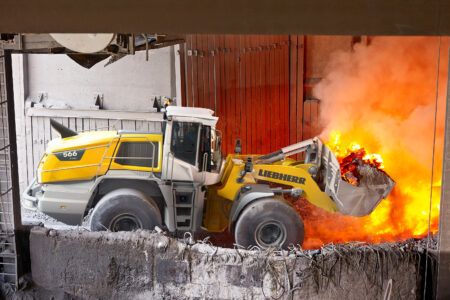The Association of Equipment Manufacturers (AEM) has released a study outlining how construction equipment technologies have advanced the construction industry and benefited a wide range of stakeholders, from contractors, to owners, to society as a whole.
The Benefits of Construction Equipment Technologies and Their Impact on Society details four construction equipment technologies that play critical roles in advancing the industry, and thereby enabling benefits to productivity and performance, planet and environment, as well as people and safety. They are: machine and grade control, engines and drivetrains, digital control systems and machine telematics.
“Today’s equipment offers incredible technologies for operators, and it’s critically important for industry stakeholders to learn how to leverage them effectively and maximise their potential,” said AEM vice president of construction and utility John Somers. “In releasing this study, we are not only showcasing how today’s construction equipment continues to advance our industry, but also highlighting the benefits of contractors and equipment owners adopting leading technology as part of their business practices.”
The newly released Benefits of Construction Equipment Technologies and Their Impact on Society study provides an overview of the construction industry as it stands today, highlights of recent improvements seen in the industry, an outline of four key construction equipment technologies benefiting industry stakeholders and society, and case studies illustrating the impact of these technologies
“Technology has revolutionised the construction equipment industry, enabling us to design and manufacture machines that are smarter, safer, and more sustainable than ever before,” said John Deere vice president, production systems, sales & marketing Jason Daly. “By embracing these technologies, the construction industry will continue to evolve and revolutionize how we design, build and maintain the world around us.”
As detailed in the Benefits of Construction Equipment Technologies and Their Impact on Society, from automated functions and telematics to cleaner and more fuel-efficient engines, technological innovations have significantly enhanced productivity, reduced downtime, increased safety, and improved overall project outcomes.
“Technology has a critical role to play in addressing the many challenges faced by our industry, including the ongoing shortage of skilled workers, cost inflation, project schedule and cost overruns and our industry’s carbon footprint”, said Trimble vice president, buildings & infrastructure, Peter Large. “While we have come a long way in our digital transformation journey, the productivity, first-time quality, safety and sustainability benefits of full equipment technology implementation for all stakeholders are not only highly compelling, they are becoming increasingly essential to our future.”
As innovation accelerates in the coming years, OEMs, technology providers, and tier 1 component suppliers will continue to develop the next generation of technology that will support industry stakeholders and beyond.
Additional support comes through positive and supportive public policy, including strategic use of state and federal funding to create efficiencies and long-term ROI, incentives to drive adoption of new technology throughout the construction industry, education of stakeholders on benefits of construction equipment technology and their significant impact, and assurance that the enabling infrastructure is in place to support implementation of technology
The adoption and implementation of next generation technology, along with existing construction equipment technologies, will drive additional benefits in productivity and performance, planet and environment, as well as people and safety.
Equipment manufacturers, technology providers and the construction industry are bringing aspects of the study to life May 14 -16 at the Celebration of Construction on the National Mall in Washington D.C.
Twenty-four participating AEM members will showcase cutting-edge innovations, including alternatively powered equipment, autonomous systems with live demonstrations and an array of other tools that are enabling the construction industry to sustainably build the infrastructure that makes modern society possible. Seventeen partnering organizations are set to add their voice to this incredible story.
Exhibits focusing on workforce development, worker safety, sustainable materials and best practices are completing the tapestry that is modern construction. AEM, member companies and partner organizations are using the three-day event as an opportunity to amplify the construction sector, its efforts in innovation and sustainability, as well as its positive impact on the American economy.





